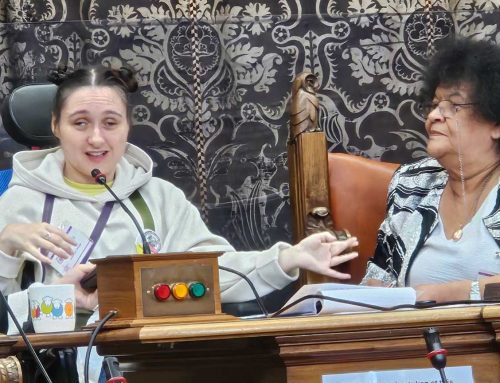Image credit: Total Shape
On Friday 10th February 2023, we were one of over 30 advocacy organisations to sign a joint letter about recommendations from something called the Joint Committee on the Draft Mental Health Bill. The committee, who are looking at potential changes to the Government’s draft bill, have suggested changes in a number of areas, including advocacy, learning disability and autism, and patient safety.
The letter, sent to the Minister for Mental Health and Women’s Healthy Strategy, urged them to respond positively to the recommendations, which would make the draft Mental Health Bill more person-centred and strengthen people’s rights.
In this blog post, we summarise what is in the letter and how advocacy is at the heart of what the new mental health laws could do.
The right to advocacy
One major recommendation from the Joint Committee was that the right to access advocacy was strengthened in the new Mental Health Bill. Advocacy, particularly Independent Mental Health Advocacy (IMHA) can help people to be heard when in mental health hospitals and other settings. It can also help people to be aware of their rights when accessing support.
Culturally-appropriate advocacy was another recommendation for people in racialized minority groups. Focusing more on that would help to reduce inequalities and ensure that the views and rights of people who need it are heard.
Learning disability and autism
The letter spoke about how the number of people who are autistic and/or have a learning disability in mental health hospitals was too high. According to the National Autistic Society, 2,030 people who are autistic and/or have a learning disability in England were in inpatient mental health hospitals in December 2022.
Under the Joint Committee’s recommendations, excluding people with a learning disability and autistic people from Section 3 of the Mental Health Act could help to improve access to community services. One thing the letter to the Minister asked is that powers to stop people from being ‘stuck’ in mental health hospitals as strengthened.
In doing that, people won’t need to stay in mental health hospitals longer than needed. Also, they would be able to access any support they might need once they are discharged from their hospital stays.
Patient safety
As an advocacy service, we strive to make sure people we work with are safe. People in mental health inpatient services are no different, supported by our IMHA team. Part of their work involves meeting with people in inpatient settings and asking if they feel safe and are being listened to when expressing their needs.
We hope that a new-look Mental Health Act ensures that access to advocacy, extra support and rights for people in marginalized groups and patient safety are all prioritized. By taking the recommendations on board, thousands of people stand to benefit.












